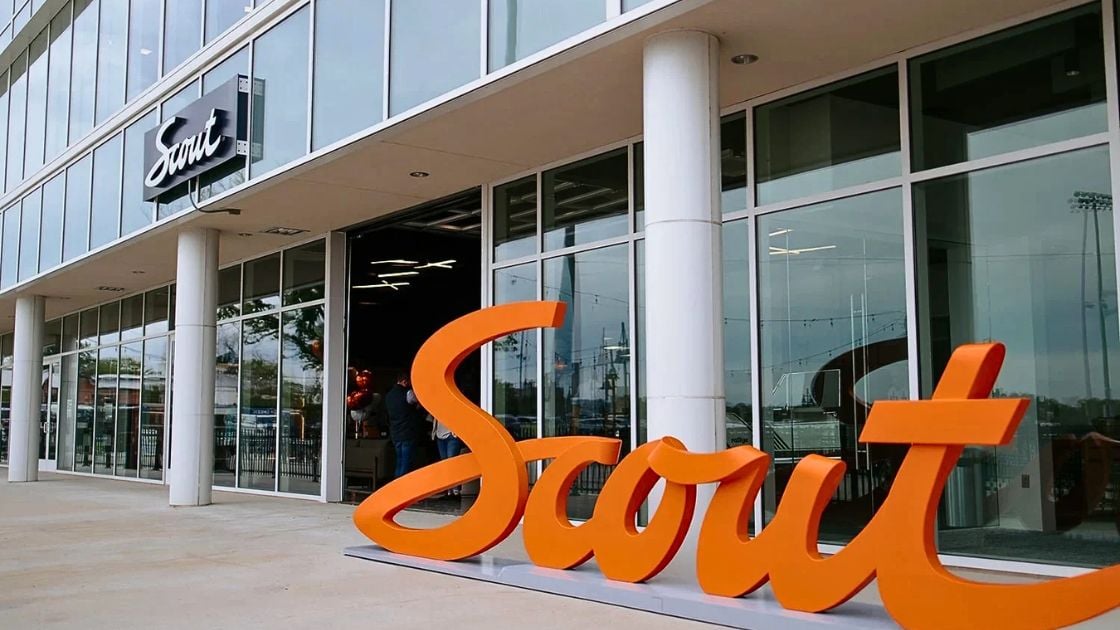Hey everyone.
Welcome to another edition of the daily roundup. Just a quick heads-up before we get started—don't forget to keep an eye out for our CDG Week in Review coming your way this weekend. It’s your chance to catch up on all the latest news from the week that you might have missed, delivered right to your inbox.
Not getting CDG newsletters yet? Sign up here to stay in the loop.
—CDG

Market Watch
1. A closer look at April’s automotive industry trends
Over the past few years, pandemic-era production shortages rippled through nearly every aspect of the car business. But so far this year, inventory has rebounded. According to the latest data from J.D. Power, retail inventory is expected to finish around 1.8 million units in April, a 3.2% increase from March 2024 but a 40% increase year-over-year.
At a glance: This uptick in inventory has led to a drop in average new car transaction prices (ATP). The ATP for April is expected to be $45,090, or $1,172 less than this time last year.
On the lot: With the boost in inventory, fewer vehicles are being pre-ordered, and more customers are purchasing cars directly from dealer lots. This month, 33.2% of cars are expected to sell within 10 days of being on the lot. Vehicles are now expected to stay at dealerships for an average of 44 days before they sell, an increase of 14 days from last year.

These conditions benefit consumers but put a squeeze on dealer profits.
By the numbers:
Retailer profit per unit, including finance and insurance, will likely hit $2,588, down by 29.8% from April 2023.
Only 16% of new vehicles are expected to fetch prices above the suggested retail in April, a sharp decline from 30.5% last year.
The average incentive spend per vehicle is forecasted to surge 56.7% year-over-year to $2,633–meaning Incentives will represent 5.3% of the MSRP.
The rise in leasing options is expected to account for 23.6% of retail sales and is driving higher incentive spending.
Looking ahead: May is typically a strong month for vehicle sales, largely buoyed by Memorial Day sales and manufacturer discounts. Historically, these incentives have driven consumer interest and sales volume during the month. And with increasing inventories, both automakers and dealers are under pressure to clear out inventory and make room for new models.
2. Auto insurance rates surge, adding pressure to inflation
Big picture: Drivers added auto insurance premiums to their long list of growing expenses last month.
By the numbers: In March, auto insurance rates rose 2.6% from the previous month, further squeezing consumer budgets. Year-over-year, rates are up a considerable 22%.
Auto insurance costs also helped drive up March’s Consumer Price Index, a key indicator of inflation.
According to the latest data from the U.S. Bureau of Labor Statistics, inflation was up 0.4% month-over-month in March and 0.4% in February. In June 2022, inflation was 9.1%, a 40-year high. Today, it is sitting lower at 3.5%.
What’s driving higher insurance premiums?
Elevated prices for new cars: According to recent data from Cox Automotive, the average transaction price for a new car was $47,218, only $26 less than in March. Despite prices falling 5.4.% from their peak in December 2022, new car prices are still 15.5% higher than they were in March 2021.
Cars are getting more expensive to fix: Car parts and technology are becoming more advanced and complex to repair. Car maintenance and repair costs rose 8.2% in one year, according to the U.S. Bureau of Labor Statistics.
Insurance companies are playing catch-up: Typically, there is a lag between when these trends emerge and when they are reflected in premiums. It takes time for insurance companies to adjust their rate application filings in order to meet regulatory compliance.
Why it matters: The high increases in auto insurance rates have eroded savings from decreasing new and used car prices and will likely continue to do so. Like food and clothing, auto insurance costs experience sticky prices–meaning prices are less likely to come down as inflation does.
3. Honda doubles down on EV investments
What’s happening: Honda announced a record $11 billion investment in Ontario, Canada, to build what it calls a “comprehensive EV value chain.”
The automaker said that its new North American EV will include assembly and battery plants, along with additional facilities to support the production of EVs and fuel-cell vehicles.
At a glance: Honda expects EV production at the plant to begin in 2028. Once fully operational, the facility will have a production capacity of 240,000 EVs per year.

2024 Honda Prologue
The automaker estimates the project will generate at least 1,000 new jobs, adding to the 4,200 employees already working at the company's two existing manufacturing facilities in Ontario.
Key quote: In North America, following the initiative to establish our EV production system capability in the U.S., we will now begin formal discussions toward the establishment of a comprehensive EV value chain here in Canada, with the support of the governments of Canada and Ontario. We will strengthen our EV supply system and capability with an eye toward a future increase in EV demand in North America,” said Toshihiro Mibe, Global CEO of Honda.
Honda is currently assessing its investment scope and finalizing negotiations with its joint venture partners. The company expects to finalize its plan within the next six months.
For context: Three years ago, Honda revealed a bold electrification strategy, aiming to sell 100% zero-emission electrified vehicles in North America by 2040.
Earlier this year, the Honda Prologue, went on sale with a starting price of $47,400 in the U.S.
Why it matters: At a time when many automakers are pulling back on their EV strategies in an uncertain market, Honda is betting big on future demand for these vehicles. Taking steps to bolster their supply chain could cut costs for the automaker and allow for more affordable models down the line.

Toyota announced it intends to spend $1.4 billion to convert its manufacturing plant in Indiana for EV production.
U.S. auto safety regulators have started an investigation into Tesla’s December Autopilot recall and update.
Hyundai is recalling 31,440 Genesis vehicles over a fuel pump issue.
Biden announces new “EV workforce hub” coming to Michigan.
The Washington State Department of Commerce is giving up to $9,000 in instant rebates toward the lease of a new EV starting this August.

We’ve got tons of great jobs hitting the CDG Job Board right now. Here are some standouts for anyone looking for their next move.
Time for something different? Dealer marketing platform Fullpath is hiring a ton of different roles across the country right now, including support specialists, sales managers, and OEM operations managers.
Prefer to be inside a dealership? Grubbs Family of Dealerships is hiring an automotive sales consultant in Grapevine, TX.
Have experience in finance? Withum is looking for an automotive dealership tax manager.
Looking to hire? Add your roles today—it’s 100% free.
Thanks so much for reading the daily roundup. Check back here Monday for more top industry stories.
— CDG








